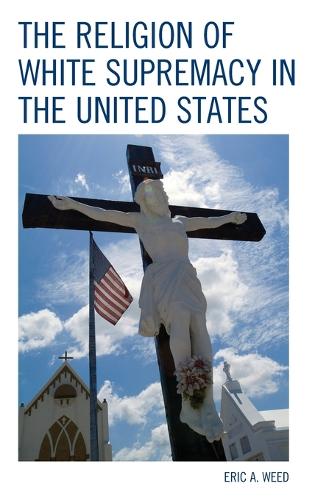
The Religion of White Supremacy in the United States
(Hardback)
Available Formats
Publishing Details
The Religion of White Supremacy in the United States
By (Author) Eric Weed
Bloomsbury Publishing PLC
Lexington Books
28th August 2017
United States
Classifications
Tertiary Education
Non Fiction
Ethnic groups and multicultural studies
History of the Americas
Theology
Social groups: religious groups and communities
Ethnic studies / Ethnicity
Christianity
305.80973
Physical Properties
Hardback
176
Width 159mm, Height 238mm, Spine 17mm
463g
Description
On January 20th, 2009, the United States entered a new era in terms of race relations in the country. The hopes of many Americans were not to be fulfilled and many believe race relations are worse now. The reason is the legacy of race is integral to the American nation. The Religion of White Supremacy in the United States traces this legacy to show how race is defined by more than beliefs or acts of injustice. What this book reveals is that white supremacy is a religion in the United States. This book is a theo-historical account of race in the United States that argues that white supremacy functions through the Protestant Christian tradition. The Religion of White Supremacy in the United States is an interdisciplinary work of Critical Whiteness Studies, American History, and Theology to build a narrative in which the religion of white supremacy dominates U.S. culture and society. In this way, the racial tensions during the Obama era become sensible and inevitable in a nation that finds ultimacy in white supremacy.
Reviews
This analysis of US racism examines white supremacy as a religion that has endured perpetual challenges and continues to affect the lives of non-white people in the US. Key themes include the Naturalization Act of 1790, which stipulated whiteness as a requirement for citizenship; the Puritans rationalization for seizing the land of Indigenous peoples; the ritual function of lynchings; the Tulsa riots; and the contemporary revival of ethno-nationalism under the administration of Donald Trump. Weed identifies a clear pattern of whites opposing the right of blacks to self-defense. He analyzes why enraged whites murdered African Americans who refused to hand over their family members to white lynch mobs, arguing that such violence presumed a divine right to sacrifice blacks to a white god. Weed also addresses the racial history of jurisprudence (e.g., United States v. Bhagat Singh Thind) that denied national membership to non-white races. Throughout the book, the author emphasizes the theological and ritual aspects of racism. In so doing, Weed makes an important case for why elucidating white supremacy as a religious formation is analytically compelling and enables unique insights into the function of racial politics. Summing Up: Essential. All public and academic levels/libraries. * CHOICE *
This important book doesnt simply present and analyze whiteness so conceived. Rather, it uses this presentation of the religion of whiteness as call to take seriously the enduring impact of race, and to speak about the workings of whiteness in ways that cut its strength to determine public life. That is to say, Weeds goal is to further foster conversation concerning the workings of whiteness, and to give this conversation greater space and urgency. By means of this intervention,The Religion of White Supremacy in the United Statesoffers both scholars and general readers an important and creative way of viewing the ongoing significance of whiteness and its relationship to US structures of deep meaning. The books aims and findings make it an ideal addition to the Lexington series on Race and Religion. We are delighted to make it available to you. -- Anthony B. Pinn, Rice University
Author Bio
Eric A. Weed was awarded his PhD from Garrett-Evangelical Theological Seminary.
